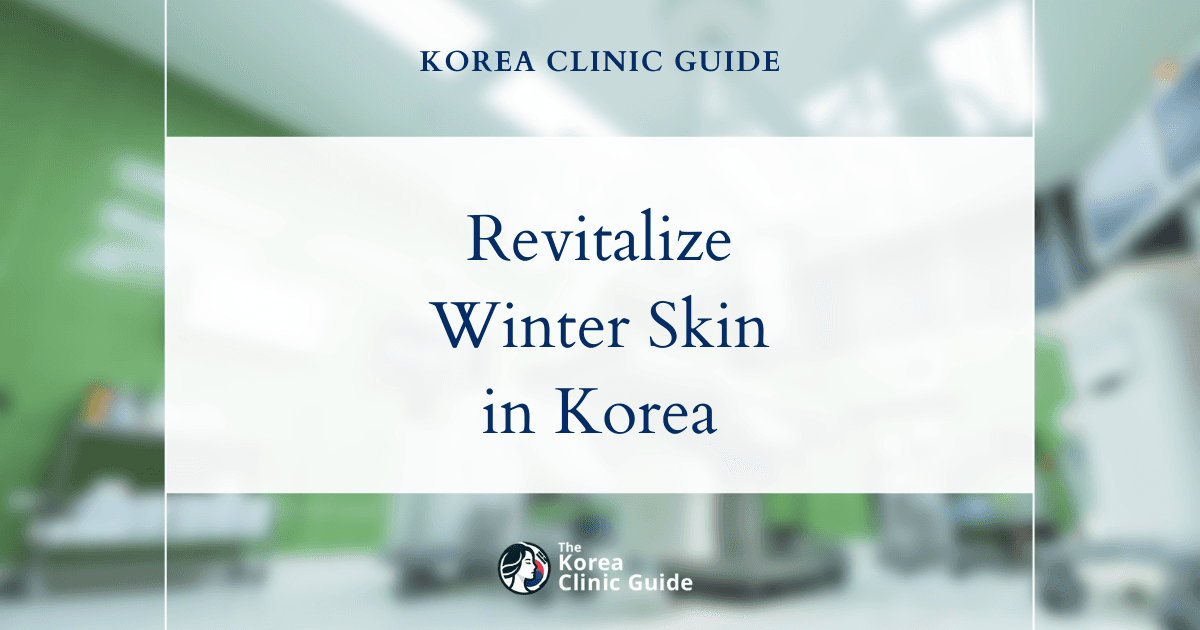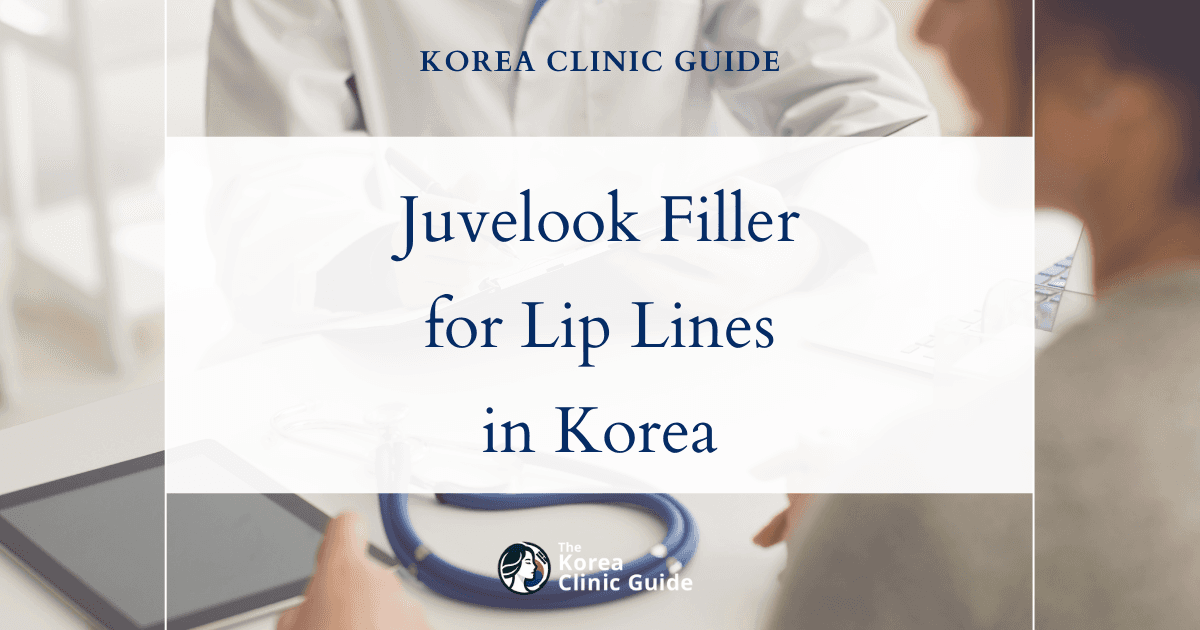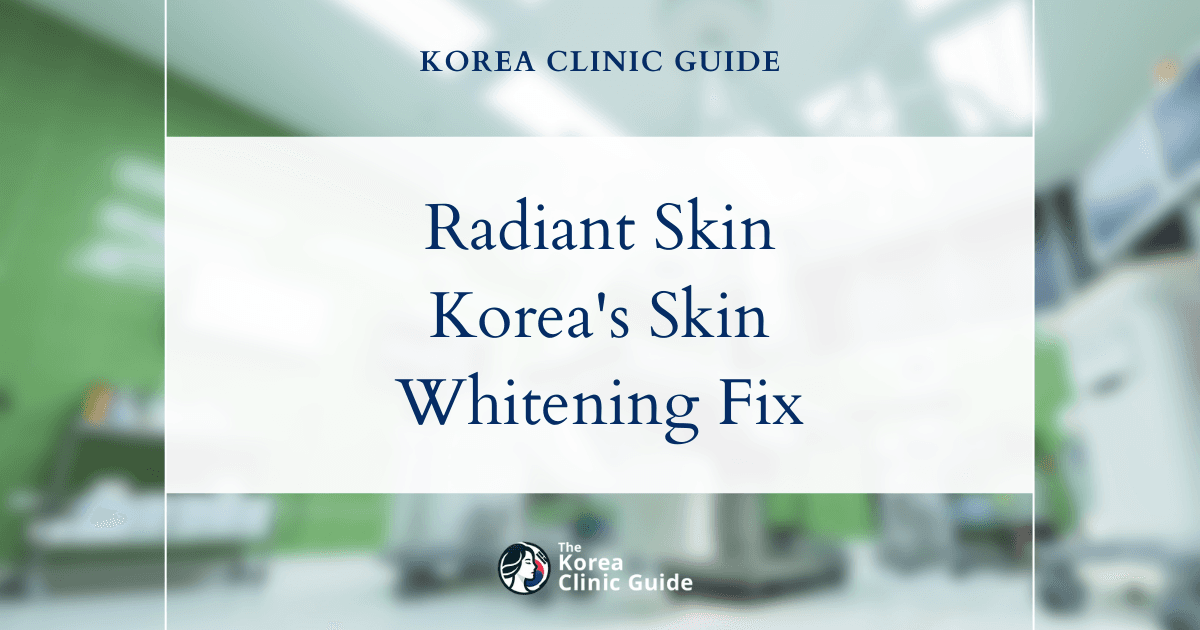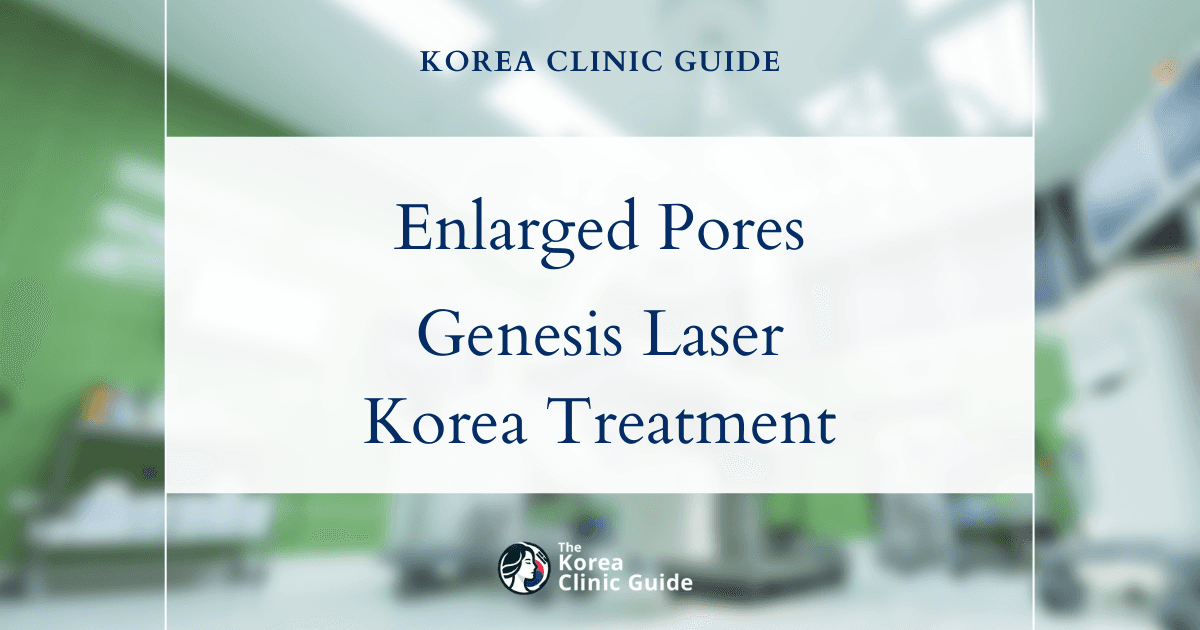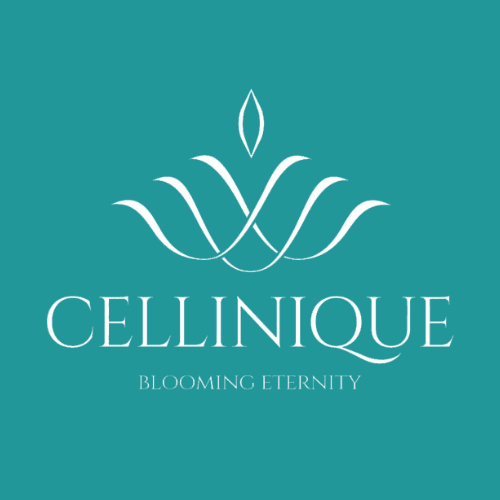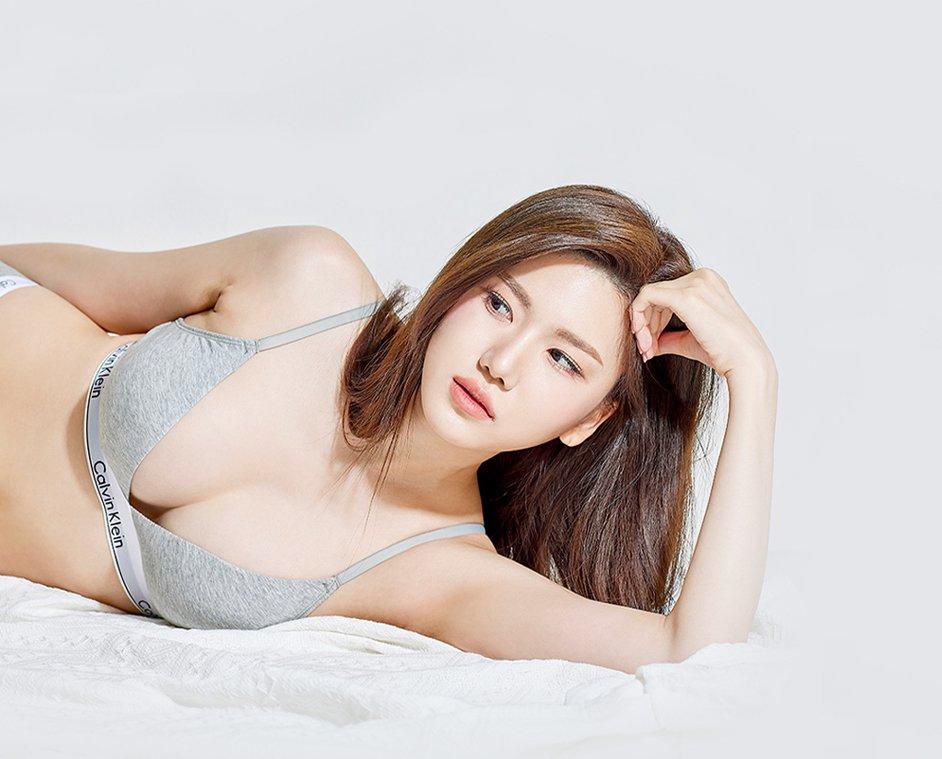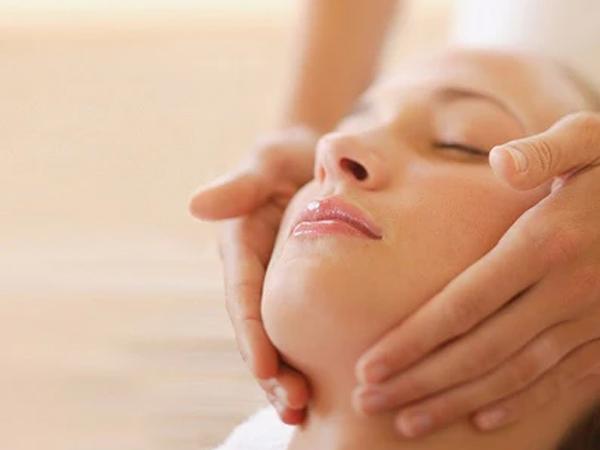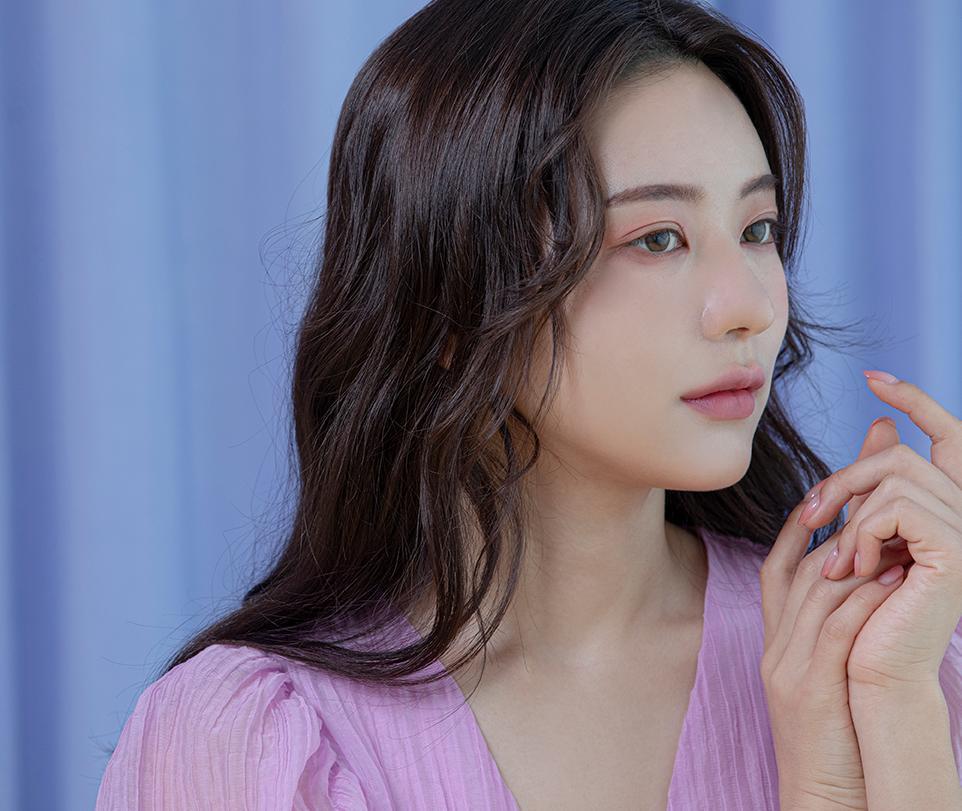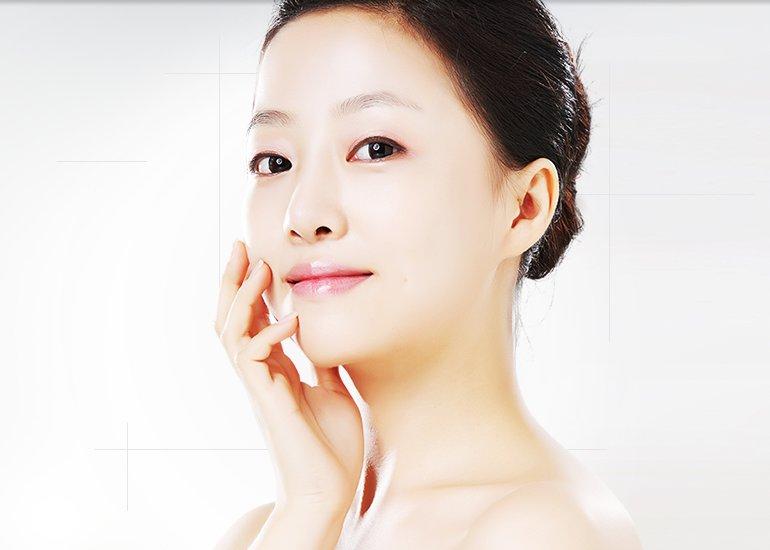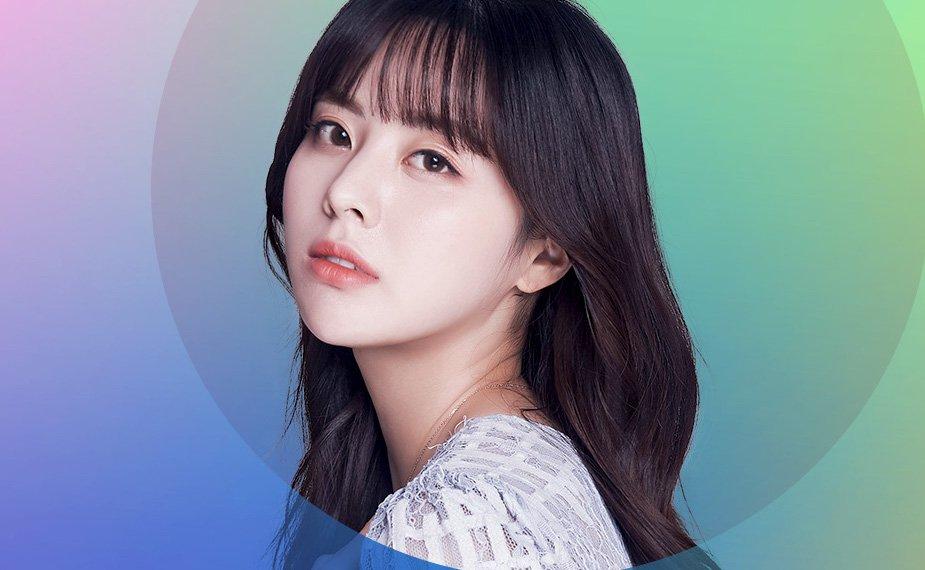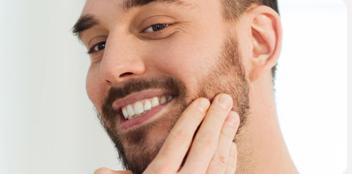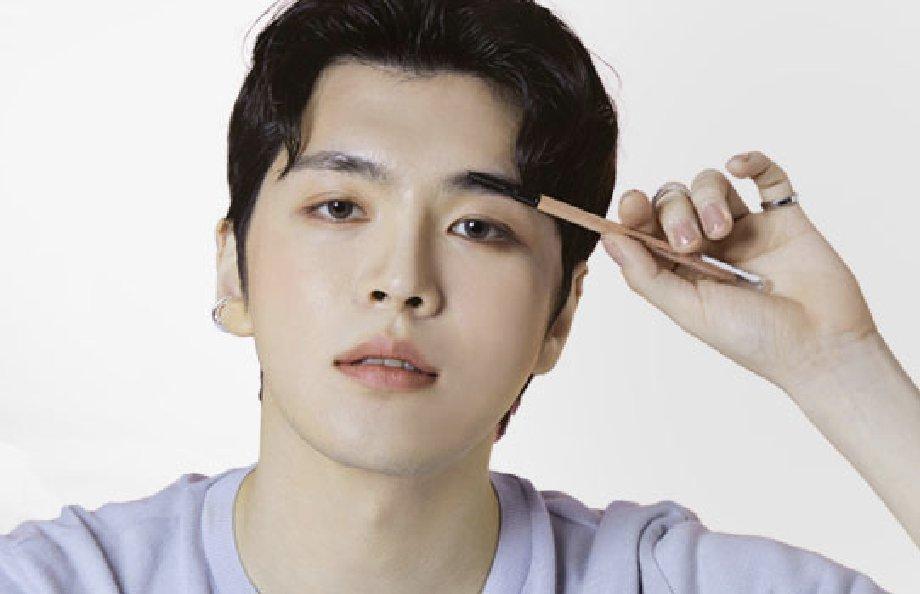Medical Tourism Blog
Scalp Care in Korea | Best Clinics, Costs, Procedure Types & More
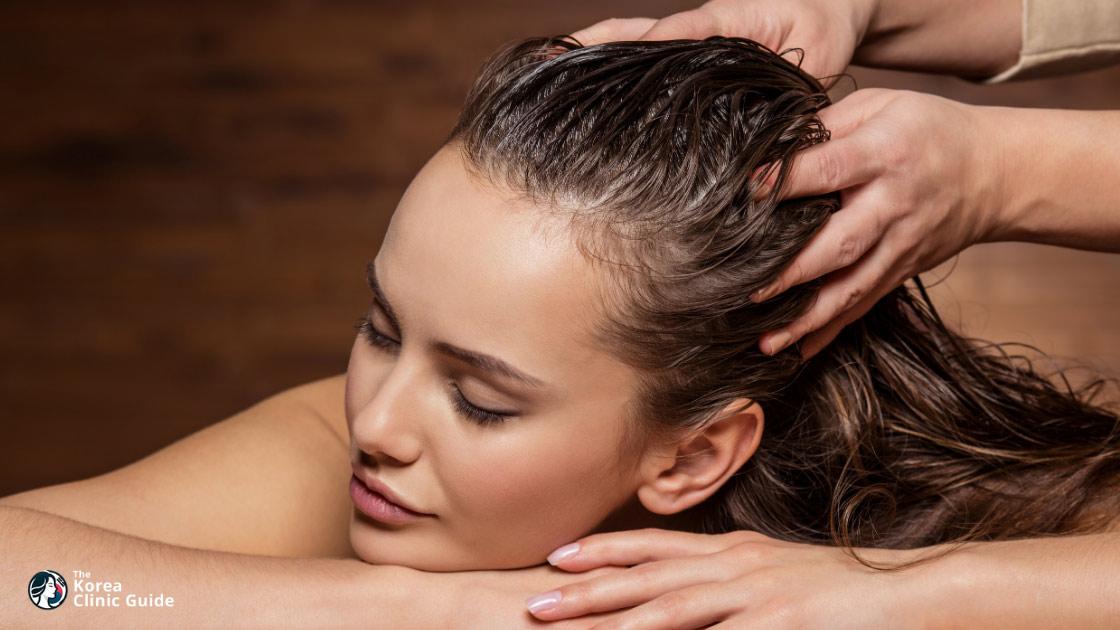
Table of contents
- What Is Scalp Care?
- Best Clinics in Korea for Scalp Care
- Scalp Care in Korea
- Cost of Scalp Care in Korea
- Alternatives to Scalp Care
- Conclusion
Considering treatment in Korea? Everything you need to know e.g. — how to avoid scams, visas, interpreters, recovery tips — in our Medical Tourism Master Guide. Plan with confidence in minutes, not weeks!
Are you aware that your scalp health could be the hidden key to achieving lustrous, vibrant hair? In Korea, a country celebrated for its groundbreaking beauty innovations, scalp care has become a critical component of personal health routines, underscoring the belief that healthy hair begins at the roots. Dive into this article to explore the transformative power of scalp care, from cutting-edge clinic treatments to home-based remedies and the associated costs, all while gaining insights on how Korea's comprehensive approach can become part of your own beauty regimen.
What Is Scalp Care?
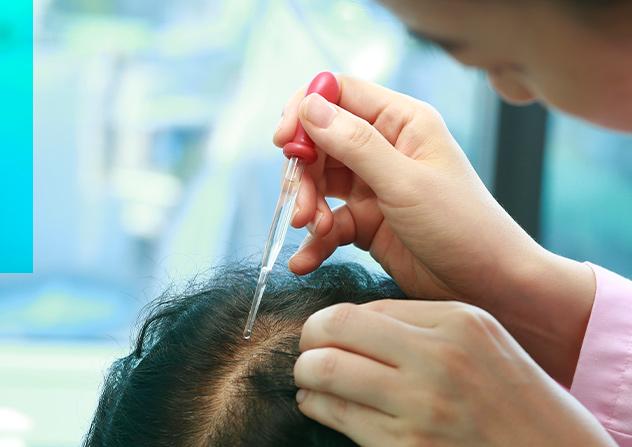
Scalp care refers to a variety of treatments aimed at maintaining and improving the health of the scalp. These treatments can range from simple home remedies to advanced medical procedures. Scalp care is essential for fostering hair growth, preventing scalp-related conditions, and enhancing overall hair health.
Who Is Scalp Care For?
Scalp care treatments are beneficial for a broad range of individuals:
- People experiencing hair loss: Whether due to genetics, hormonal changes, or other underlying conditions, scalp care can slow down hair loss and promote regrowth.
- Individuals with dandruff or seborrheic dermatitis: These conditions can cause itching and scaling, and specialized scalp treatments can alleviate these symptoms.
- Those with sensitive or irritated scalps: Chemical treatments, environmental factors, or poor hair care practices can lead to scalp irritation, and targeted care can soothe and restore scalp health.
- Individuals seeking preventive care: Regular scalp maintenance can prevent future issues and ensure that hair remains healthy and vibrant.
Types of Scalp Care Procedures
Scalp care encompasses a wide variety of procedures, each tailored to address specific needs and conditions. Here are some of the most prevalent types:
1. Professional Scalp Treatments
Scalp Exfoliation: This involves the removal of dead skin cells and product buildup from the scalp. It is typically performed using scrubs or chemical exfoliants like alpha hydroxy acids (AHAs) and beta hydroxy acids (BHAs).
Scalp Massages: Professional scalp massages can improve blood circulation, which in turn promotes hair growth and reduces stress. These massages may incorporate essential oils with therapeutic properties.
LED Light Therapy: Using low-level laser therapy (LLLT) or red light therapy, this treatment helps stimulate hair follicles, increasing their activity to promote hair growth.
Platelet-Rich Plasma (PRP) Therapy: This is a medical treatment that involves injecting concentrated platelets from the patient’s own blood into the scalp to accelerate tissue repair and hair growth.
2. Home-Based Scalp Care
Medicated Shampoos and Conditioners: Products containing ingredients like ketoconazole, salicylic acid, or zinc pyrithione can treat dandruff, seborrheic dermatitis, and other scalp conditions.
DIY Scalp Masks and Treatments: Ingredients such as aloe vera, tea tree oil, and coconut oil can be used in homemade treatments to soothe and nourish the scalp.
Microneedling Devices: Though typically performed by professionals, some microneedling devices are available for home use. This treatment involves rolling tiny needles over the scalp to stimulate hair follicles and improve product absorption.
Procedure Phases
1. Consultation and Diagnosis
A thorough consultation with a dermatologist or trichologist (a specialist in hair and scalp conditions) will help identify any underlying issues and determine the most suitable course of treatment.
2. Treatment Plan Development
Based on the consultation, a personalized treatment plan is developed. This may involve a combination of at-home care and professional treatments.
3. Procedure Execution
During the treatment phase, the chosen procedures are performed, which may involve multiple sessions depending on the extent and nature of the scalp condition.
4. Follow-Up and Maintenance
Regular follow-ups help ensure that the treatment is effective and allows for any necessary adjustments. Long-term maintenance may include ongoing at-home care practices and periodic professional treatments.
Conclusion
Scalp care is an essential aspect of overall hair health that addresses a variety of conditions and concerns. Through a combination of professional treatments and home care practices, individuals can achieve a healthy, well-nourished scalp, leading to improved hair growth and condition. Whether combating hair loss, dandruff, or general scalp sensitivity, scalp care offers a tailored approach for everyone’s unique needs.
Best Clinics in Korea for Scalp Care
Listed below are the best clinics in Korea for scalp care:
| Clinic Name | Key Features | Special Techniques |
|---|---|---|
| Chaum Website | Private, quiet check-up rooms enhance comfort and privacy, creating an ideal setting for sensitive scalp health consultations; Comprehensive health check-ups with advanced diagnostics and specialist input support early detection of underlying issues that may influence scalp and skin health, leading to truly customized management plans; Dermatology expertise in skin rejuvenation provides a strong foundation for addressing scalp-related skin concerns with a medical approach; Anti-aging programs, including stem cell therapy and hormone replacement therapy, are designed to promote overall vitality and tissue health—key factors in maintaining a healthy scalp environment; Multidisciplinary outpatient care (general medicine, pain management, dermatology, plastic surgery) enables integrated, whole-person strategies for scalp concerns that intersect skin, systemic, and lifestyle factors; Wellness services such as TheraSpa and personalized fitness programs help reduce stress and support overall well-being, complementary pillars for scalp care; Advanced equipment, specialist consultations, and tailored health management plans ensure a personalized pathway from assessment to follow-up; Convenient access at Sinnonhyeon Station simplifies ongoing care and continuity; A track record of award-winning excellence underscores Chaum’s leadership in delivering innovative, high-quality medical and wellness care. | Stem cell therapy; Hormone replacement therapy; Dermatology-based skin rejuvenation; Multidisciplinary outpatient care |
| Zonskin Oriental Medicine Clinic Website | Zonskin Oriental Medicine Clinic is the best clinic for scalp care in Korea because it unites a holistic, naturalistic philosophy with rigorously personalized therapies that target both the root causes of scalp concerns and their visible effects. Through Five-Element Acupuncture tailored to each individual’s constitution, the clinic works to restore systemic balance that can influence scalp comfort, circulation, and resilience. Individualized herbal prescriptions—also available in convenient capsule form—are designed to enhance the body’s natural healing capacity and address underlying imbalances rather than merely masking symptoms. Biocompatible herbal ointments complement internal therapies by supporting the scalp’s skin ecosystem with gentle, medicinal botanicals. Guided by a non-surgical, non-chemical, non-artificial approach, Zonskin prioritizes safe, natural interventions that respect the scalp’s integrity while pursuing long-term health. The clinic’s integration of health and beauty further aligns scalp care with overall well-being, and its 1:1 personalized treatment model ensures each patient receives care precisely matched to their unique needs. | Five-Element Acupuncture; Individualized herbal prescriptions; Biocompatible herbal ointments; Non-surgical, non-chemical, non-artificial approach; 1:1 personalized treatment model |
| Ktox Clinic - Ilsan Website | Ktox Clinic – Ilsan stands out as the best choice for scalp care in Korea because it approaches the scalp as specialized skin and applies the same rigorous, evidence-based standards that drive its renowned Skin Clinic and aesthetic programs. With trained medical professionals using state-of-the-art equipment, the clinic’s experience in resolving complex cutaneous issues—such as acne and acne scars, pigmentation and freckles, and age-related laxity with non-surgical options like Ultherapy and Thermage—demonstrates mastery of inflammation control, pigment balance, collagen remodeling, and tissue tightening, all of which are fundamental to maintaining a healthy, resilient scalp. Their precision-driven injectable portfolio (including jaw and wrinkle botox, and strategic fillers) reflects deep anatomical expertise and a safety-first culture that translates to meticulous care for hair-bearing skin. Add to this a comprehensive, head-to-toe aesthetic perspective—spanning body contouring and special rejuvenation procedures—and Ktox Clinic’s hallmark individualized care ensures that each patient receives a tailored plan and follow-up designed to optimize scalp health, comfort, and long-term aesthetic outcomes. | Ultherapy; Thermage; Jaw and wrinkle botox; Strategic fillers |
Chaum
Chaum is a premier medical and wellness clinic offering a uniquely private, patient-centered experience, where specialists and state-of-the-art equipment come directly to your individual check-up room. Located at Sinnonhyeon Station, Chaum delivers personalized healthcare programs designed to cultivate excellent health, preserve youthfulness, and treat disease across the spectrum—from comprehensive health check-ups and cancer screening to advanced anti-aging therapies, dermatology and plastic surgery, and holistic wellness services such as TheraSpa and a professional fitness center. Its numerous awards reflect a sustained commitment to medical excellence and innovation.
- Private, quiet check-up rooms enhance comfort and privacy, creating an ideal setting for sensitive scalp health consultations.
- Comprehensive health check-ups with advanced diagnostics and specialist input support early detection of underlying issues that may influence scalp and skin health, leading to truly customized management plans.
- Dermatology expertise in skin rejuvenation provides a strong foundation for addressing scalp-related skin concerns with a medical approach.
- Anti-aging programs, including stem cell therapy and hormone replacement therapy, are designed to promote overall vitality and tissue health—key factors in maintaining a healthy scalp environment.
- Multidisciplinary outpatient care (general medicine, pain management, dermatology, plastic surgery) enables integrated, whole-person strategies for scalp concerns that intersect skin, systemic, and lifestyle factors.
- Wellness services such as TheraSpa and personalized fitness programs help reduce stress and support overall well-being, complementary pillars for scalp care.
- Advanced equipment, specialist consultations, and tailored health management plans ensure a personalized pathway from assessment to follow-up.
- Convenient access at Sinnonhyeon Station simplifies ongoing care and continuity.
- A track record of award-winning excellence underscores Chaum’s leadership in delivering innovative, high-quality medical and wellness care.
Find more about this clinic here: Chaum Website
Zonskin Oriental Medicine Clinic
Zonskin Oriental Medicine Clinic is the best clinic for scalp care in Korea because it unites a holistic, naturalistic philosophy with rigorously personalized therapies that target both the root causes of scalp concerns and their visible effects. Through Five-Element Acupuncture tailored to each individual’s constitution, the clinic works to restore systemic balance that can influence scalp comfort, circulation, and resilience. Individualized herbal prescriptions—also available in convenient capsule form—are designed to enhance the body’s natural healing capacity and address underlying imbalances rather than merely masking symptoms. Biocompatible herbal ointments complement internal therapies by supporting the scalp’s skin ecosystem with gentle, medicinal botanicals. Guided by a non-surgical, non-chemical, non-artificial approach, Zonskin prioritizes safe, natural interventions that respect the scalp’s integrity while pursuing long-term health. The clinic’s integration of health and beauty further aligns scalp care with overall well-being, and its 1:1 personalized treatment model ensures each patient receives care precisely matched to their unique needs.
Find more about this clinic here: Zonskin Oriental Medicine Clinic Website
Ktox Clinic - Ilsan
Ktox Clinic – Ilsan stands out as the best choice for scalp care in Korea because it approaches the scalp as specialized skin and applies the same rigorous, evidence-based standards that drive its renowned Skin Clinic and aesthetic programs. With trained medical professionals using state-of-the-art equipment, the clinic’s experience in resolving complex cutaneous issues—such as acne and acne scars, pigmentation and freckles, and age-related laxity with non-surgical options like Ultherapy and Thermage—demonstrates mastery of inflammation control, pigment balance, collagen remodeling, and tissue tightening, all of which are fundamental to maintaining a healthy, resilient scalp. Their precision-driven injectable portfolio (including jaw and wrinkle botox, and strategic fillers) reflects deep anatomical expertise and a safety-first culture that translates to meticulous care for hair-bearing skin. Add to this a comprehensive, head-to-toe aesthetic perspective—spanning body contouring and special rejuvenation procedures—and Ktox Clinic’s hallmark individualized care ensures that each patient receives a tailored plan and follow-up designed to optimize scalp health, comfort, and long-term aesthetic outcomes.
Find more about this clinic here: Ktox Clinic - Ilsan Website
Scalp Care in Korea
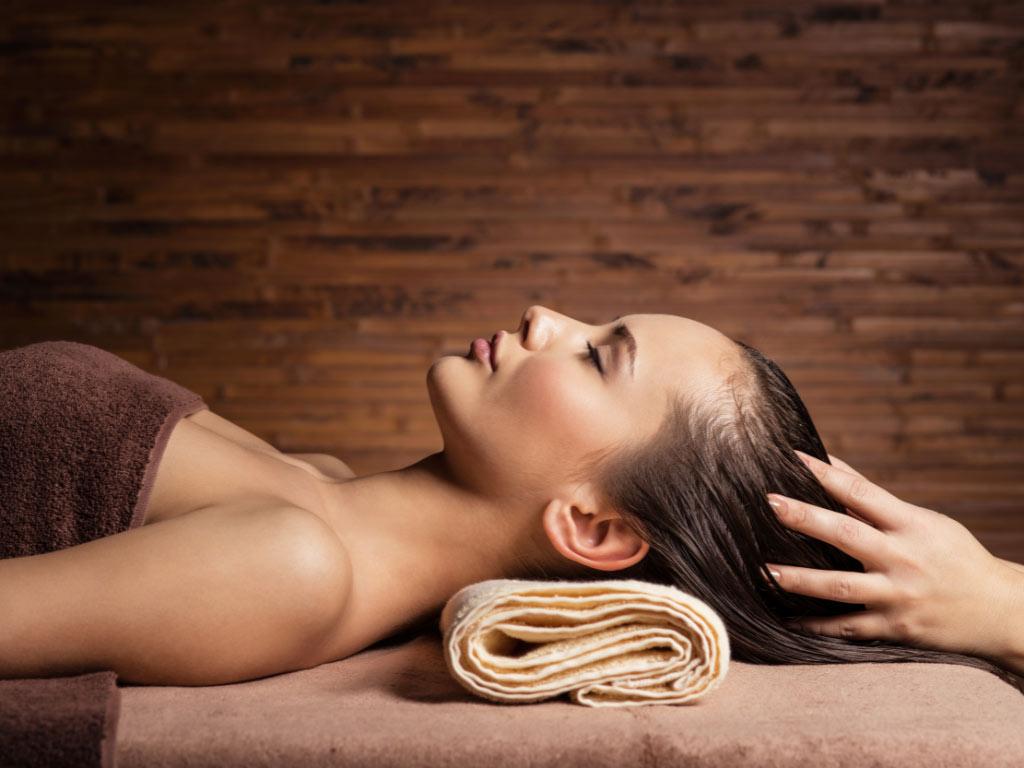
Scalp care in Korea is a highly specialized and comprehensive procedure designed to maintain and improve the health of the scalp, which is crucial for healthy hair growth. The process typically involves several steps and employs advanced techniques to diagnose and treat various scalp conditions.
Initial Consultation and Diagnosis
The experience begins with an in-depth consultation with a certified trichologist or dermatologist. During this initial phase, the specialist will inquire about the patient's medical history, lifestyle, and any specific concerns related to their scalp or hair. Advanced diagnostic tools, such as a trichoscope or scalp analyzer, are often used to magnify and assess the condition of the scalp and hair follicles. This helps in identifying issues like dandruff, seborrheic dermatitis, folliculitis, excessive oiliness, or even hair loss patterns.
Personalized Treatment Plan
Based on the diagnosis, a personalized treatment plan is developed. The plan may involve multiple sessions spread over several weeks or months, depending on the severity of the condition. The treatment regimen usually combines various techniques to cleanse, exfoliate, nourish, and rejuvenate the scalp.
Cleansing and Exfoliation
The first active step often involves deep cleansing and exfoliation. Specialized scalp shampoos and exfoliating agents are used to remove dead skin cells, excess sebum, and any accumulated styling products that can clog hair follicles. Some clinics use microdermabrasion tools specifically designed for the scalp to achieve a more thorough exfoliation.
Nourishment and Treatment
After cleansing, the scalp is typically treated with nourishing serums, masks, or infusions containing ingredients like peptides, vitamins, and plant extracts. These ingredients are chosen for their efficacy in promoting scalp health and hair growth. In more advanced clinics, these nutrients may be delivered via microneedling or electroporation, which enhances the absorption of active ingredients deep into the scalp.
Scalp Massage and Stimulation
A therapeutic scalp massage is often incorporated into the treatment. This serves not only to relax the patient but also to stimulate blood circulation, which is vital for nutrient delivery to the hair follicles. Some clinics employ high-frequency devices that use light and electrical pulses to further stimulate scalp cells and enhance overall scalp health.
Laser Therapy
For patients experiencing hair thinning or hair loss, low-level laser therapy (LLLT) might be included in the treatment plan. LLLT uses specific wavelengths of light to penetrate the scalp, stimulating hair follicles and promoting hair growth. This non-invasive procedure is painless and usually lasts about 20 minutes per session.
Home Care Regimen
Upon completion of the in-clinic procedures, patients are typically advised on a home care regimen to maintain the health of their scalp. This may include specific shampoos, conditioners, and topical treatments prescribed by the specialist. Dietary supplements that boost hair health might also be recommended.
Follow-up Appointments
Regular follow-up appointments are crucial to monitor progress and make any necessary adjustments to the treatment plan. During these visits, the specialist will assess improvements using the same diagnostic tools employed during the initial consultation, ensuring that the treatment is effective and sustainable.
Scalp care in Korea is a meticulous and multi-faceted approach aimed at addressing individual scalp issues with the utmost precision and care. Tailored to meet each patient's unique needs, this method not only improves scalp health but also fosters an environment conducive to healthy and robust hair growth.
Cost of Scalp Care in Korea
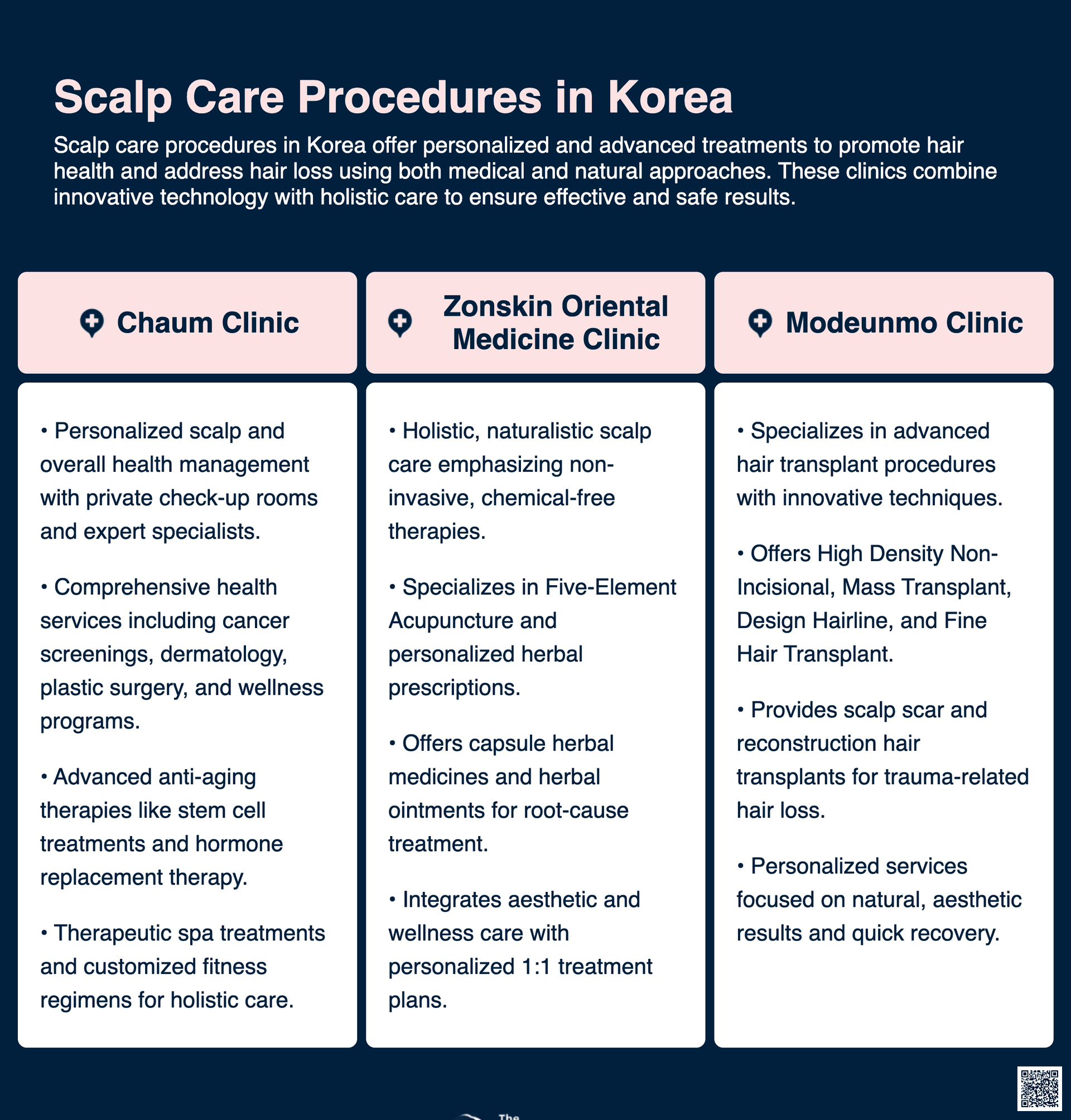
When considering the cost of scalp care in Korea, it’s important to take into account various factors such as the type of treatments, the clinic or spa chosen, and the frequency of sessions. Below, we delve into these aspects as well as additional travel-related expenses.
Treatment Costs
Scalp care treatments in Korea are known for being advanced and highly effective. The cost of these treatments can vary widely depending on their complexity and the reputation of the service provider. Below are some common types of treatments and their approximate costs:
- Scalp Cleansing: KRW 50,000 to KRW 100,000 per session (approximately $40 to $80 USD)
- Hair Loss Treatment: KRW 300,000 to KRW 500,000 per session (approximately $120 to $240 USD)
- Anti-Dandruff Treatment: KRW 70,000 to KRW 150,000 per session (approximately $55 to $120 USD)
- Scalp Massage: KRW 30,000 to KRW 60,000 per session (approximately $24 to $48 USD)
Travel Expenses
Flying to Korea involves additional costs that should be considered when planning your trip for scalp care. Here is a breakdown of typical travel expenses:
- Airfare: A round-trip ticket from the United States to Korea can range from $700 to $1,500 USD, depending on the time of year and airline.
- Accommodation: The cost of staying in Korea also varies based on the type of lodging. Budget hotels can cost around KRW 50,000 per night (approximately $40 USD), while more luxurious options can go up to KRW 300,000 per night (approximately $240 USD).
- Local Transportation: Public transport is relatively affordable, with subway and bus tickets costing about KRW 1,250 (approximately $1 USD) per ride. Taxis are also reasonably priced, starting at about KRW 3,800 (approximately $3 USD) for a basic fare.
- Daily Expenses: Including meals and miscellaneous costs, you might spend around KRW 50,000 to KRW 100,000 per day (approximately $40 to $80 USD).
In summary, while the cost of scalp care treatments in Korea can be substantial, the comprehensive packages and advanced techniques available offer good value for money. Factoring in travel expenses ensures a well-planned budget for those considering making the trip.
Alternatives to Scalp Care
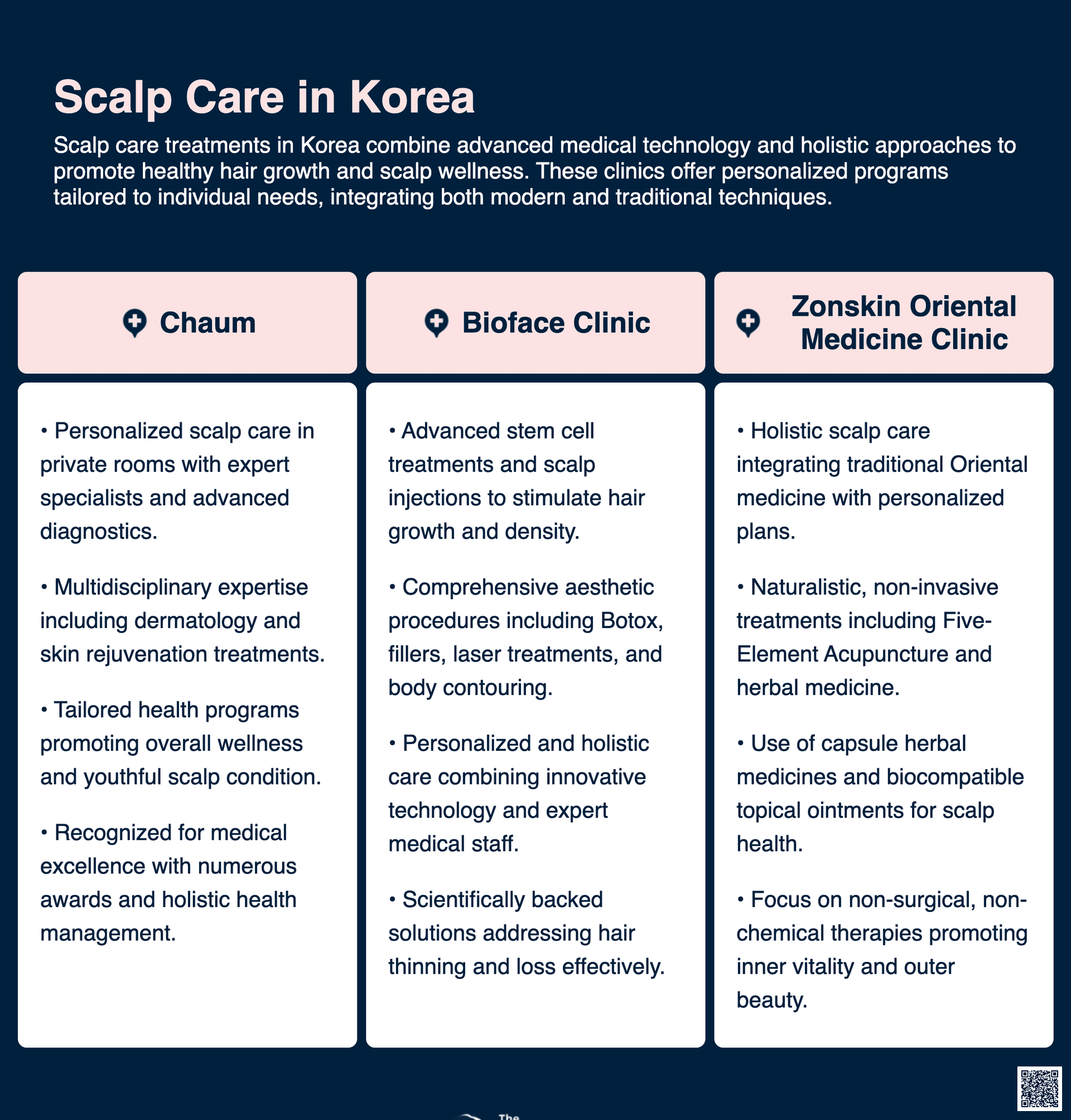
Skin Cancer Prevention
Everyone is at risk for skin cancer, making prevention crucial for long-term skin health. Dermatologists provide several tips to protect your skin:
- Use Sunscreen: Apply a broad-spectrum sunscreen with SPF 30 or higher on all exposed skin.
- Wear Protective Clothing: Long sleeves, wide-brimmed hats, and UV-blocking sunglasses offer additional protection.
- Seek Shade: Limit your sun exposure, especially between 10 AM and 4 PM, hours when UV rays are strongest.
Utilizing these preventative measures can help mitigate the risk of developing skin cancer, thus maintaining healthier skin and scalp.
Acne Keloidalis Nuchae Treatment
If you have what feels like razor bumps or acne on the back of your neck or scalp, you may be dealing with acne keloidalis nuchae. Here are some recommended treatments:
- Topical Treatments: Use topical antibiotics or corticosteroid creams, which help reduce inflammation and bacterial infection.
- Oral Medications: In some cases, oral antibiotics or retinoids can be prescribed to tackle more severe inflammation.
- Laser Therapy and Surgery: For advanced cases, laser treatments or minor surgical procedures can be effective in removing scar tissue and preventing further outbreaks.
These treatments, prescribed by a dermatologist, can significantly improve this condition and provide relief from discomfort.
Hair and Scalp Care Adjustments
Proper scalp care is integral to preventing various scalp conditions and maintaining healthy hair. Here are some general tips advised by dermatologists:
- Gentle Cleansing: Use mild shampoos and avoid harsh chemicals to prevent scalp irritation.
- Moisturize: Conditioners and scalp oils can prevent dryness and maintain a healthy scalp environment.
- Avoid Over-Styling: Heat styling and tight hairstyles can lead to scalp and hair damage. Opt for gentle styling methods.
Making these changes in your hair care routine can greatly benefit your scalp and overall hair health.
Conclusion
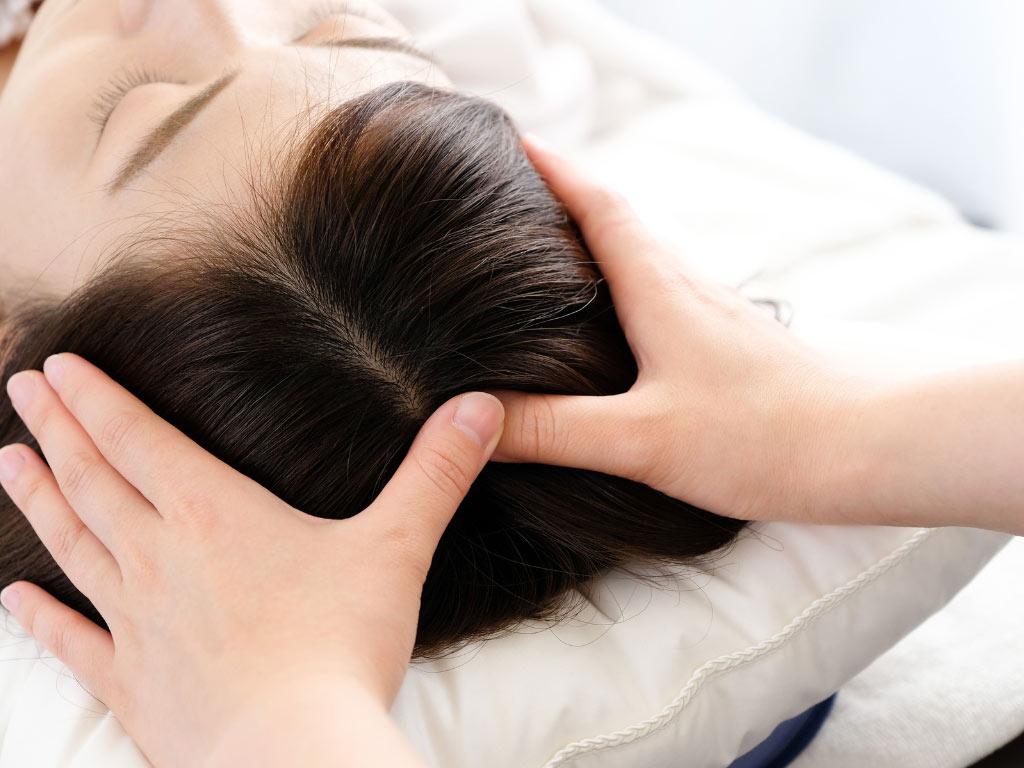
In conclusion, scalp care in Korea exemplifies a holistic approach that merges traditional wisdom with cutting-edge scientific advancements, making it a global frontrunner in hair health. By prioritizing natural ingredients, adopting innovative practices, and emphasizing routine maintenance, Koreans have developed an effective regimen that addresses a wide range of scalp concerns, from dandruff to hair thinning. As the importance of scalp care gains recognition worldwide, many can look to Korea for inspiration and practical insights into achieving a healthier, well-nourished scalp. The Korean scalp care philosophy underscores that investing time and effort into proper scalp maintenance is not just about aesthetics but also about fostering overall well-being.
